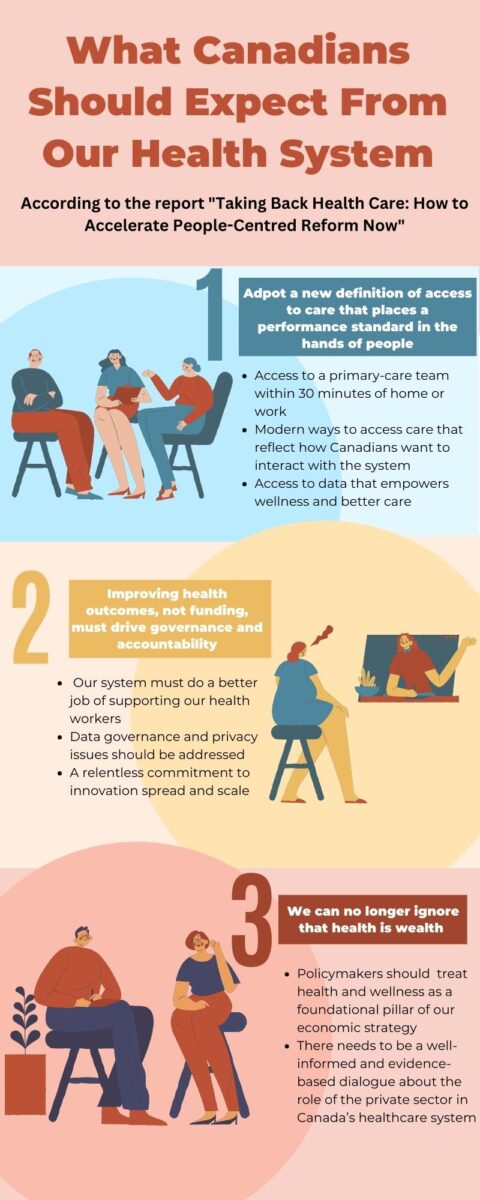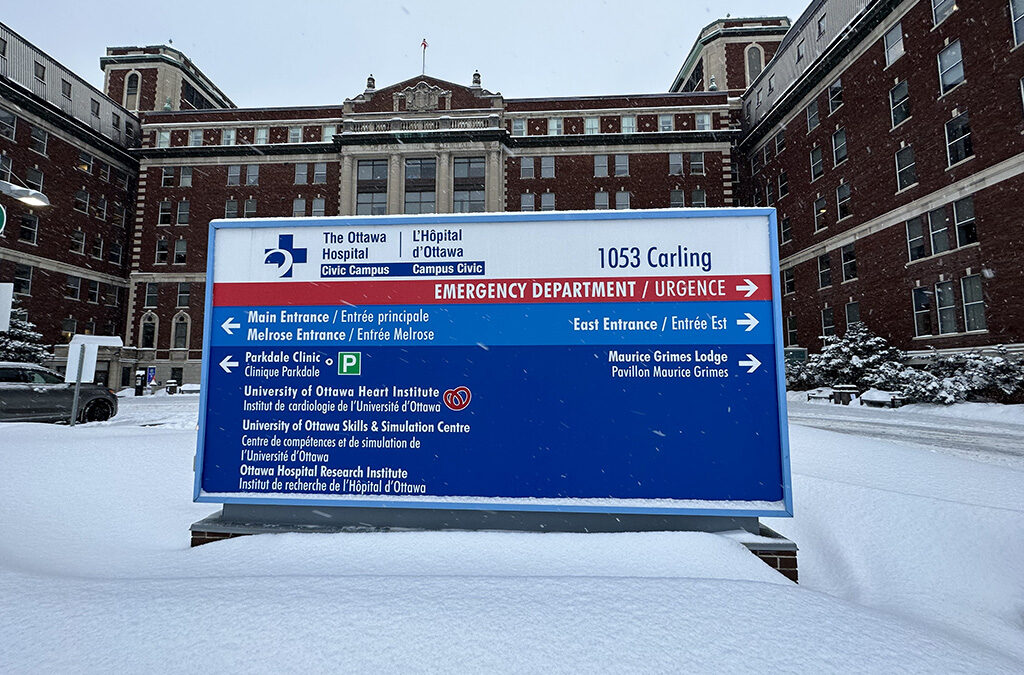Growing concerns about Canadians’ lack of access to primary health care — nationally and locally — were highlighted in recent reports issued by the Public Policy Forum and the city-run Ottawa Public Health agency.
Health-care leaders advising the Public Policy Forum, an Ottawa-based policy research institute, released an urgent open letter to Canadians and a Jan. 24 report titled, “Taking Back Health Care: How to Accelerate People-Centred Reform Now”.
“Our health-care system belongs to all of us. It is not a possession of politicians, or the property of stakeholders claiming special status to speak in its interest. They are the custodians, the guardians to whom we have entrusted the system’s welfare,” the PPF advisors stated in the open letter.
“The owners are the 39 million Canadians who increasingly feel disenchanted and disenfranchised by what until recently has served as a shining light of our nationhood,” they added.
“Their disappointment has approached a dangerous breaking point. It is well past time for the bold actions that will restore confidence and ensure excellence in what has been — and can again be — this country’s pride and joy.”
A key recommendation of the authors — including former federal health minister Dr. Jane Philpott, now dean of health sciences at Queen’s University — is that “every Canadian should have the right to a relationship with a primary-care team,” within 30 minutes of their home or work, “whom they can access for routine care and more urgently when the need is pressing.”
‘The recent pandemic definitely worsened this issue, with many of our healthcare’s shortcomings being magnified. Many family physicians are retiring earlier or changing their careers, which is further leaving many patients without family physicians.”
— Dr. Michael Malek, family physician based at the Civic campus of The Ottawa Hospital
The issue of Canadians’ access to primary health care — in short, a family doctor — was also at the forefront of a Jan. 30 Ottawa Board of Health meeting. The board, a committee of city council focused on public health issues, received a report from Ottawa Public Health that concluded “100,000 to 150,000 individuals in Ottawa do not have access to a regular primary care doctor.”
In the Public Policy Forum report, the authors argue for range new goals to guide reform of health-care delivery in Canada, including access to a primary care team within a short distance of where you live; personal data mobility; the free, accredited movement of health-care workers within Canada; and better empowerment of family and friends to help care for loved ones.
According to a press release, the Public Policy Forum report is “the first report in a year-long project, coordinated by PPF, to provide provincial and federal governments with up-to-the-minute policy advice as the current health-care crisis unfolds.”
Philpott, echoing the title of the think tank’s report, recently told CBC, “it’s time to take back health care for Canadians.”

“We want to spark a change in mindset,” said Georgina Black, the vice chair and managing partner for government, health and life sciences at Deloitte Canada and a contributor to the report.
She added the report was “designed to change the conversation from a focus on governance and funding to a focus on what we as Canadians and consumers of the healthcare system need, want and expect.”
Meanwhile, the OPH report on primary care, presented by Ottawa’s medical officer of health Dr. Vera Etches, discussed similar issues addressed in the PPF report examined through a local lens.
According to the report, the crisis of primary care is accelerating “partly due to changing doctor demographics, impending retirements, shifts away from comprehensive family medicine and clinician burnout across the health system exacerbated by the COVID-19 pandemic.”
Ottawa’s Dr. Michael Malek has been a family physician for 25 years. “The recent pandemic definitely worsened this issue, with many of our healthcare’s shortcomings being magnified,” he told Capital Current.
Malek, part of the family physician team at the Civic campus of The Ottawa Hospital, added: “Many family physicians are retiring earlier or changing their careers, which is further leaving many patients without family physicians.”
Malek said in Ontario, the creation of more family health teams (FHT) will improve access to patients for multi-disciplinary care, but as of now, the province has not permitted the creation of more FHTs.
“Governments need to act quickly to correct the family doctor shortage,” he said.
Rideau-Rockcliffe Coun. Rawlson King — a member of the Ottawa Board of Health — highlighted the OPH report’s troubling finding that up to 150,000 “people within our region do not have a family doctor.”
During the Jan. 30 meeting, Stittsville Coun. Glen Gower said: “This issue is something each level of government — municipal, provincial, and federal — has a responsibility to address.”
‘This issue is something each level of government — municipal, provincial, and federal — has a responsibility to address.’
— Stittsville Coun. Glen Gower, member, Ottawa Board of Health
Kelli Tonner, executive director at the South-East Ottawa Community Health Centre near the Billings Bridge Shopping Centre, said solving the family doctor crisis is central to fixing other health-care challenges.
“We need to work together to figure out how (to) move forward and ensure primary care is the foundation of our health system,” said Tonner.
Etches said Ottawa Board of Health has an important role in helping to assess and diagnose the problem, so people can understand where to start to ensure there is better delivery of and access to health-care services.
“(Our role) is to make sure everyone understands the data across different stakeholder groups and that we hear from populations who might not be represented in the data.”
Trevor Arnason, the associate medical officer of health at Ottawa Public Health, said in an email that “Local Ottawa Health Teams will take the lead role in convening partners to propose solutions and actions to enhance primary care access in Ottawa.”
Black, the PPF advisor and co-author of its report, added: “We should have an ambition in Canada to have the healthiest population in the world.”
Tonner encouraged local residents without access to primary care to keep looking for those resources and to seek out alternatives when needed.




